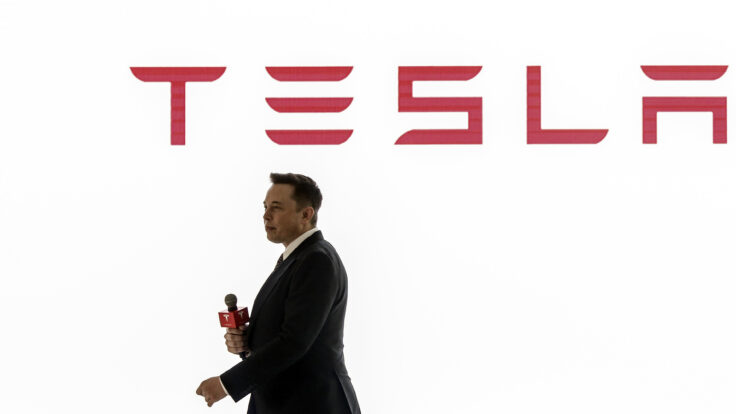 |
|
Welcome to Dry Powder. I’m Bill Cohan.
|
|
Today, I’ve got the exclusive details on the current deal structure being worked up for David Ellison’s hoped-for takeover of Paramount Global—a multistep process that involves some creative financing, an executive shake-up, and schmuck insurance for Shari Redstone. All that and more, below the fold…
|
 |
| Gerry & The Jeffs Come for Shari’s Baby |
| I’ve got the skinny on the Ellison-Paramount deal—an extraordinarily fascinating deleveraged recap featuring a multibillion-dollar PIPE, Jeff Shell’s return to the top ranks of the media world, and possibly even Jeff Zucker’s revival as a top television executive. You can’t make this shit up. Will the special committee of the board buy it? |
|
|
|
| Finally, at long last, the stark deal dynamics at Paramount Global can be distilled to their very essence. There are three choices facing the special committee of the company’s board of directors, or at least those directors who remain after the sudden mass resignation last week of Dawn Ostroff, Nicole Seligman, Frederick Terrell, and Rob Klieger. Notably, Klieger and Seligman are lawyers; Ostroff is a savvy media veteran; Terrell is a senior deal guy at Wells Fargo. Suffice it to say, this was not a good look and the latest sign we’ve encroached even farther into unchartered territory when it comes to Paramount. Anyway, there’s the David Ellison-RedBird-KKR deal. Then there’s the Apollo Global opportunistic option, and there’s door number three—an increasingly unattractive and possibly even untenable status quo alternative, a.k.a., do nothing.
Based on my recent conversations, the multistep Ellison and Gerry Cardinale deal is the most creative—and, while certainly not riskless, the most potentially rewarding for the non-Redstone shareholders of the company. The first step requires the group to buy Shari Redstone’s family holding company, National Amusements Inc., for $2 billion, or thereabouts, giving Redstone a roughly 160 percent premium on her $730 million economic stake in Paramount Global, which she controls with 77 percent of the voting shares. In buying NAI, Ellison gets the control of Paramount that he wants, plus some 840 tired movie theater screens around the world that he probably doesn’t want and will somehow be managed out in future deals, if he can find buyers for them. It’ll be Shari’s responsibility to pay off the roughly $200 million of NAI bank debt and the $175 million payment-in-kind (PIK) preferred owed to her banker Byron Trott and his firm, BDT & MSD Partners.
This has all been largely leaked into the media and seems humdrum for a deal of this size, particularly one pertaining to a family-owned business. The second and third part of the proposed deal is where things get considerably more complicated.
|
| Jeff Shell Into the Catbird Seat |
|
| The second step would require Paramount to buy Skydance for something like $5 billion in stock—an acquisition price that is far from set, as both sides are currently engaged in a 30-day exclusive due diligence window to figure out relative values. In the third step of the proposed deal, the Ellisons—including, as I suspected, Larry—and RedBird and KKR would buy a new class of Paramount preferred stock in the amount of “many billions,” I’m told. The new preferred will be used to pay off a portion of Paramount Global’s $14 billion of net debt.
In effect, the Ellison-Cardinale-KKR team is proposing an old-fashioned recapitalization of Paramount—what used to be called a leveraged recap, although this is more akin to a deleveraging recap. In this structure, Paramount would remain a publicly traded company with a new controlling shareholder, Ellison-RedBird-KKR. Interestingly, I’m also told that Shari is expected to roll over a portion of her proceeds from the sale of NAI into the new deal—likely a combination of “schmuck insurance” and an obsequious but necessary gesture to convince the almighty independent committee that she’s aligning her interests with non-controlling shareholders who have no choice but to roll over their stock or to just sell it.
Not surprisingly, I’m told that Bob Bakish, the Paramount C.E.O. who has made more than $60 million during the past two years despite the company’s disastrous performance, would exit with his golden parachute. And probably not a moment too soon, since I’m also told that the Shari-Bakish relationship has grown increasingly tense and complex—supposedly over disagreements about combining the money-losing Paramount+ with Comcast’s Peacock, as well as the future of Showtime. (A spokesman for Paramount declined to comment.)
Nothing is set in stone quite yet, of course, but the current thinking is that Ellison-Cardinale-KKR plan to replace Bakish with Jeff Shell, who has been an executive-in-residence at RedBird since he left the top job at NBCU after an affair with a colleague was unearthed. David Ellison will run the combined Paramount and Skydance movie studios, while another eminent member of the RedBird executive stable, Jeff Zucker, would more than likely become the head of CBS and its affiliated television stations. (This was an idea I predicted years ago, soon after Zucker was defenestrated from CNN at the peak of his powers. A spokesman for Jeff declined to comment.) “I think Jeff Shell genetically is the only person on the planet who could actually architect this,” explained someone who knows him well. “The marrying of Shell with Ellison is interesting because it lets David continue to be the creative guy, and Shell is the guy who has done this before at NBC. He really is the one architecting this.”
And, so the theory of the case goes, the Ellisons and RedBird will be fully aligned with the Paramount shareholders—they don’t get a return on their new money into Paramount unless the non-Redstone shareholders benefit, by having the stub equity trade up into the range of $30 and $40 a share. And that, of course, is the promise that Ellison and Cardinale must sell to the special committee of the Paramount board. If they can do it, they probably prevail. If their argument is nothing more than words on a PowerPoint, then we’re in deal Twilight Zone.
|
|
|
| The special committee of the Paramount board, which is being advised by Blair Effron at Centerview Partners and Faiza Saeed at Cravath, has granted Ellison and Cardinale their 30-day exclusive period in order to perform a number of key evaluations. Paramount must perform due diligence on Skydance, which is a private company, and Skydance can get deeper into the Paramount numbers beyond what is available in the company’s public filings with the Securities and Exchange Commission. The parties have to agree on the conversion price and sizing for the convertible PIPE financing—the private investment in a public equity. It would be important, I think, for the Ellison-RedBird-KKR group to invest enough to return the Paramount Global credit back to investment grade, after its recent dip into junk territory. In other words, this PIPE has to be serious new money, and my sense is that is exactly the plan.
Will all this fresh capital and new management eventually raise the stock price to around $30 to $40 a share, from the $10 or so a share where it’s trading now? At the moment, this is a fair amount of hopium, probably contained in a PowerPoint presentation somewhere inside of RedBird’s Madison Avenue office to convince Blair and Faiza that the Ellison deal makes more sense than the Apollo deal or the increasingly unattractive do-nothing option. It’s not crazy, I suppose, for Shell, Ellison, and (likely) Zucker to outperform Bakish and make the hard calls on initiatives that Paramount desperately needs to execute: cutting costs, combining divisions, finding a streaming partner for Paramount+, selling BET and Showtime, etcetera, and hoping that the stock doubles, triples, or quadruples in value. (This is not investment advice.)
But I’m old enough to remember any number of corporate recapitalizations that traded down to zero—a possibility that the special committee will be considering, too. And even if Ellison and Cardinale convince Blair and Faiza, they’ll also have to sell the deal to the long-suffering Mario Gabelli, the largest non-Redstone holder of Paramount voting stock, who now controls 12 percent of that class of stock, after increasing his stake by 1 million shares or so in the last quarter. Gabelli is in the pole position to block a deal with this group if the special committee decides to seek a vote of the majority of the minority voting shareholders. If Blair is not convinced that the Ellison deal is “fair” to the minority shareholders of Paramount, like Gabelli and John Rogers Jr. at Ariel Investments, the other large holder of the Paramount voting stock, the special committee can just block the Ellison deal, and there’s not much Shari can do about that decision. The ability to say no gives the special committee real power in this situation.
|
|
|
| Shari, as the controlling shareholder, obviously has her own leverage. She can unilaterally block the Apollo deal—a quasi-financial offer rather than a strategic bid (although Apollo does own a bunch of local television stations and a big minority stake in Legendary Entertainment)—without being required to offer a compelling explanation. But that doesn’t mean the Apollo deal is dead.
There is a scenario where the special committee is not persuaded by the Ellison-RedBird-KKR deal, and rejects it out of hand. At that point, Shari would have to choose between the Apollo offer or staying the course with Bakish and a strategic plan that the market continues to shit on. This is precisely the sort of buyer-of-last-resort predicament for which Apollo has been positioning its bid all along. And even if the independent committee should not be contemplating this game theory in their evaluation of the Ellison-RedBird-KKR deal, the Apollo guys sure seem to be gaming out the situation. It’s kind of brilliant, actually.
Sure, the Apollo offer is only a 50 percent premium, not the 160 percent premium of the Skydance deal for NAI. But it’s a whole lot better than nothing and does take the distressing matter of Paramount out of Shari’s hands once and for all (although she would be left with NAI’s movie theaters, presumably Trott’s next sale assignment). Indeed, the Apollo crowd would almost certainly take her father’s life’s work and unceremoniously bring in new management, carve up the company in a tax-efficient manner, and squeeze it for everything it’s worth. Ellison and Cardinale are undoubtedly counting on this unappealing image lingering in the minds of all the key stakeholders.
The nuances and deal psychology at play here are utterly extraordinary. If Paramount Global didn’t have a controlling shareholder, I’d say for sure that Shari has decided to sell the company and the board’s so-called “Revlon duties”—the requirement that a board accept the highest cash bid for a company, even if it would prefer a different bidder—would kick in. In that case, I’d think the special committee would have little choice but to sell the company to Apollo, since its 50 percent premium would be available to all shareholders, not just the Redstone family. But Shari can just reject the Apollo deal out of hand—as she can reject or implement any action at the company simply by written proxy—and so the Revlon duties likely can’t be triggered. (There might well be shareholder lawsuits testing that premise, but I’m told the legal precedents support Shari on this one.) That’s what, I think, gives the Skydance deal an advantage here.
|
|
|
| Yes, the Gerry-Ellison concoction is the most exciting option. But will the special committee recommend the deal knowing full well that the Paramount stub equity could still trade down, triggering endless litigation? On the other hand, I’m not sure I’d want to be a member of the special committee that rejected the deal, cognizant that Shari has nixed the Apollo offer, in favor of the status quo. That’s also a recipe for a plethora of shareholder lawsuits.
If we’re gaming this out here—and, I must note, a number of people around this sale process have suggested to me, half-jokingly, that Puck should get a deal fee—then I’m still thinking the Apollo deal may be the best option after all. (Again, not investment advice…) Sure, it’s not as exciting as the Ellison opportunity, with all its bells and whistles and Jeffs. And, yes, Apollo is trying to buy Paramount at a low point. But as low as Paramount is trading right now, it can still trade down further.
Shari would obviously prefer the $2 billion that Ellison is offering over the roughly $1.25 billion that she stands to make in the Apollo deal, but will she really risk letting a bird in the hand fly away? If Blair and Faiza nix Gerry and David, she’ll be left with Bakish and a publicly traded Paramount and a PIK preferred at NAI that’s growing by 7.75 percent per year. If I were Shari, I would authorize Trott to start a serious negotiation with Apollo to try to get the firm to raise its offer toward Ellison-Gerry territory. The plot thickens and is getting nuttier than ever.
|
|
|
|
| FOUR STORIES WE’RE TALKING ABOUT |
 |
|
 |
|
 |
| R.F.K. Oppo Wars |
| Revealing the Dems’ secret campaign against Nicole Shanahan. |
| TEDDY SCHLEIFER |
|
 |
| Trump’s ’24 Woes |
| An exclusive poll on voters’ pre-election sentiments. |
| PETER HAMBY |
|
|
|
|
|
 |
|
|
|
Need help? Review our FAQs
page or contact
us for assistance. For brand partnerships, email ads@puck.news.
|
|
You received this email because you signed up to receive emails from Puck, or as part of your Puck account associated with . To stop receiving this newsletter and/or manage all your email preferences, click here.
|
|
Puck is published by Heat Media LLC. 227 W 17th St New York, NY 10011.
|
|
|
|










